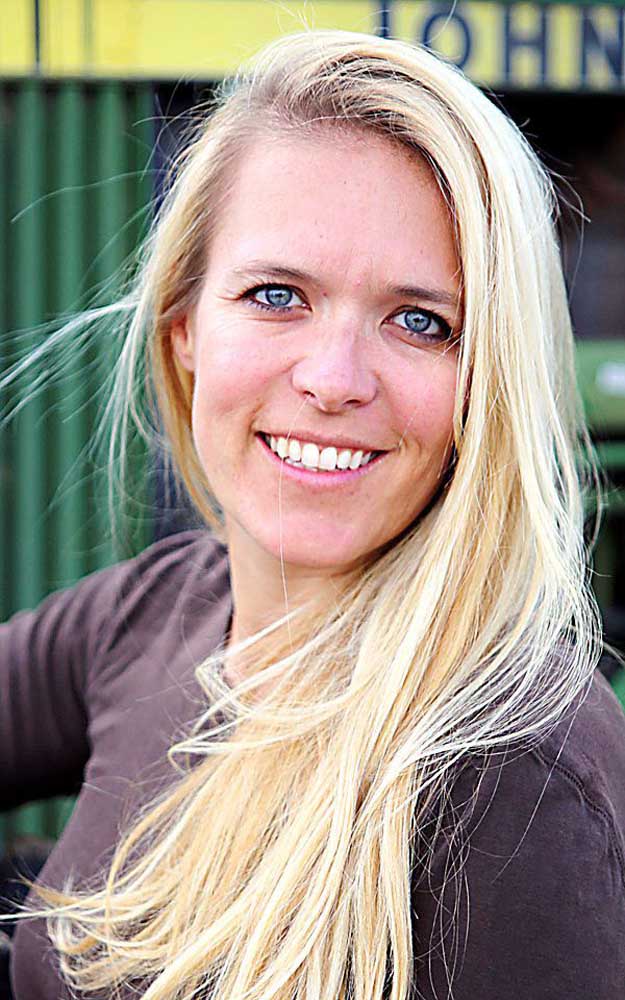Farmer’s Fate: An ebullient cynosure of linguistics*
Published 10:15 am Wednesday, November 10, 2021

- Brianna Walker
Words are fun to me. Finding a new word, especially when it describes complex feeling, is tantamount to topping off a milkshake with a cherry. I wouldn’t say I’m sesquipedalian** about it, but I certainly am not hippopotomonstrosesquipedaliophobic.***
* a zestfully enthusiastic guide to the language of words
** someone who frequently drops long words into sentences
*** someone with a fear of long words
With school starting back up, we’ve been talking a lot about words.
“What’s the biggest word?” my littlest asked.
“That’s a good question. I’m not entirely sure, but I know a few really long ones,” I say. We opened up the dictionary to one of the words I found when I was a kid, and has always been one of my favorite go-to long words: floccinaucinihilipilification.
Which means rare or of little value. But, as it’s one of the longest words in the English language, any sesquipedalian will have this tucked in their belt.
We spent a bit more time looking for fun and unusual words or phrases, and here are a few that we found:
• Tidsoptimist (Swedish): a person who is always late because they think they have more time than they do; a time optimist.
• Hiraeth (Welsh): a homesickness for a home you can’t return to, or that never was.
• Sobremesa (Spanish): the time after lunch or dinner spent talking to people you shared the meal with.
• Zhi zi zhi shou, yu zi xie lao (Chinese): to hold hands and grow old together.
While we were looking up words online and in the dictionary, we laughed over funny-sounding words, made sillier by our horrible pronunciations.
Afterwards, though, I thought more about the original question: “What’s the biggest word?” What is it? I guess that depends on what is meant by big. If that’s the longest, then we surely covered some of them in our session of giggles — trying to read words that looked more like a couple of keys had stuck and just went racing across the page. But, just like my favorite word, floccinaucinihilipilification, it doesn’t mean much — literally. The long words are rarely the ones that count most. The ones that are in a deeper sense the “biggest” words are actually short and precise, like love, kids, work, play, life, God. Then there is that really short word that seems to have the biggest consequences — if. This simple two-letter word can represent either big trouble or big gains.
Words, no matter how many letters, can mean so many big things. Especially when you start stringing them together to form even bigger thoughts.
The most melancholy words: “if only…”
The words with the longest consequences: “I do”
The most beautiful words: “You’ve lost weight!”
The nine most terrifying words in the English language: “I’m from the government and I’m here to help.” (Ronald Reagan, 1986)
The saddest three words in the English language: Rest in peace.
The two most empowering words: I choose.
The single greatest word in the 20th century: freedom. (Lawrence Folkemer)
It doesn’t take long for me to get lost in the etymology of words: their meanings, the feelings they invoke — both joy and despair. My soliloquy was cut short when my kids reminded me that they, too, have had words that upon utterance have made them mournful and despondent. “Really?” I asked, intrigued.
“Yes,” my 12-year-old answered. “Back to school.”
I stifled a laugh while I rolled my eyes. Maybe didaskaleinophobia, the fear of school, needs to be on his new spelling list.
I guess the moral to this story, though, is this: While it is fun to find big words that will so accurately depict the complexities of feelings or situations, at the end of the day, it is never about learning the big words. It’s not even about remembering the big words, or using them properly in a sentence. Because the words with the biggest value really aren’t that colossal or hard to pronounce. Even the youngest and littlest can say them: mom, dad, brother, sister, love, John Deere …
What are your paramount words?






